Difficult to control drug prices
On the afternoon of June 26, continuing the 7th Session of the 15th National Assembly , the National Assembly discussed in the hall the draft Law on amending and supplementing a number of articles of the Law on Pharmacy.
Speaking at the discussion session, National Assembly Deputy Pham Khanh Phong Lan ( Ho Chi Minh City delegation) expressed agreement with the Inspection Report of the Social Committee.
According to the delegate, the Law has provisions to prioritize the development of the pharmaceutical industry. However, according to the delegate, improving the process and procedures for granting drug registration numbers as in the draft is necessary. But it is necessary to consider the root of the problem.
"Currently, we are in a state of granting registration numbers without direction, only based on records. This means that any country, any product, as long as there is a company to register, will be considered for issuance in our country. Therefore, it will lead to overload, slow updating of new drugs, many registration numbers for one active ingredient, including drugs that have been produced domestically. This will easily lead to a "request - give" mechanism, negativity as well as difficulty in choosing drugs in bidding. In the end, only choosing because of cheap price", Ms. Lan said.
According to Ms. Lan, the draft Law needs to have a direction on which drugs need priority and which drugs need to have limited registration numbers. To limit this, it is necessary to use technical "barriers", assess actual production conditions, not just on paper, and use professional organizations like other countries are doing.
Regarding distribution, the reality of the explosive increase in the number of wholesale distribution companies and retail pharmacies since the 2016 Pharmacy Law has increased greatly, according to delegates. This is not only a positive assessment that makes it easier for people to buy drugs, but also needs to be recognized that when many wholesale companies increase intermediary costs, it is difficult to control drug prices, while the post-control mechanism and inspection apparatus remain the same.
“The same goes for pharmacies, reduced profits force them to come up with competitive strategies, ignoring the need to prescribe. So now, the situation of people buying whatever they want at pharmacies, ignoring all the rules of good pharmacy practice is still very painful,” said Ms. Lan.
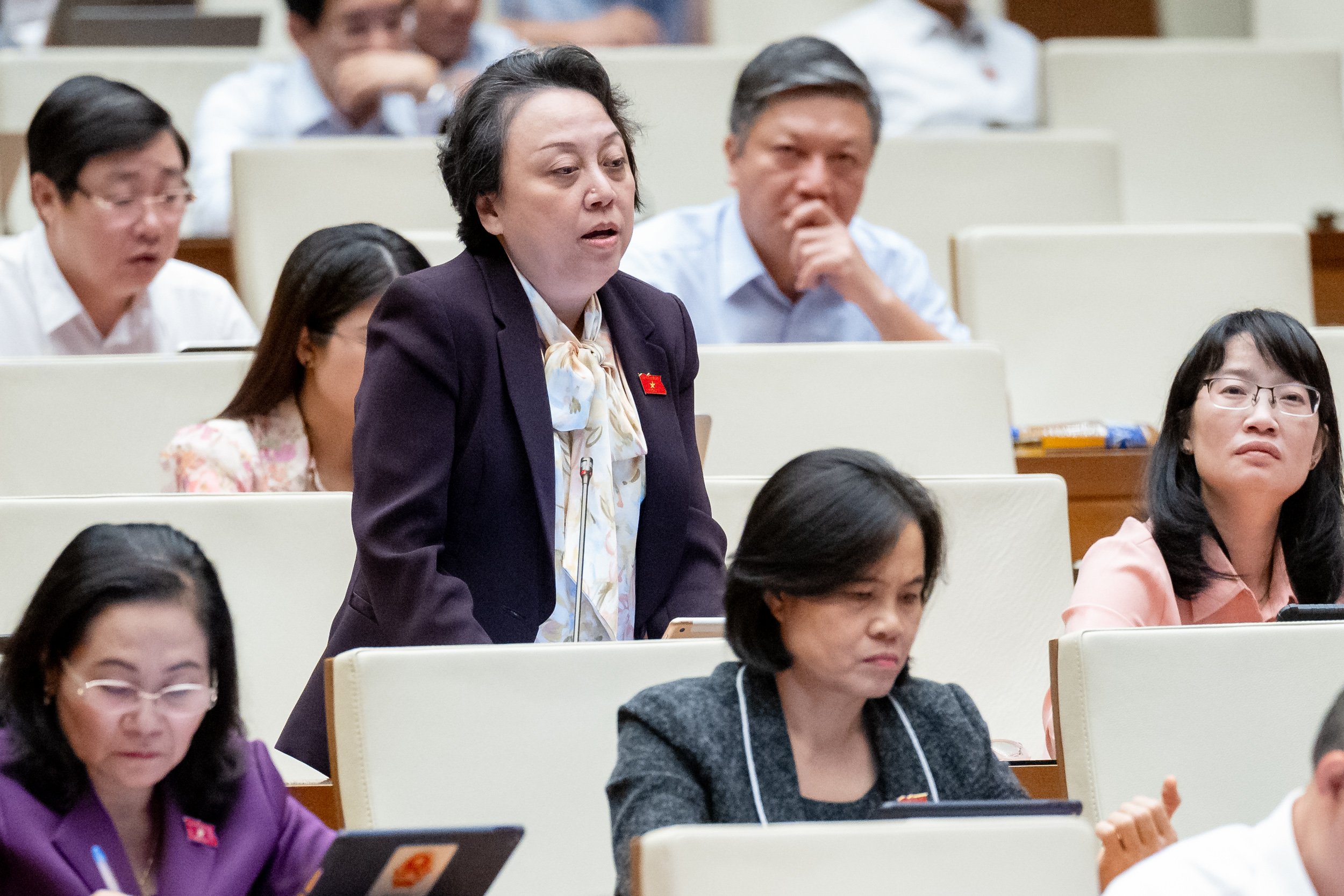
National Assembly Deputy Pham Khanh Phong Lan.
Therefore, the delegates suggested that there should be regulations, for example, re-establishing the distance conditions between pharmacies so that pharmacies can be distributed more reasonably. Avoid the situation of concentrating too many pharmacies in some places, and need to publicize the licenses at the pharmacies.
Concerned about regulations on applying e-commerce and selling medicine online, Ms. Lan said: "Traditional pharmacy management is not yet well-known, but now thinking about selling medicine online can potentially pose many risks, especially the risk of fake medicine, poor quality medicine, which is very difficult to detect and handle."
“In cyberspace, in my opinion, the contents of the draft Law on selling drugs through electronic trading floors are still very simple and fragmented, not feasible enough,” Ms. Lan added.
The delegate proposed that, under no circumstances, prescription drugs should be included in the list of drugs that can be distributed via e-commerce.
As for non-prescription drugs, the application of e-commerce must be considered at a stage when our legal system is more tightly completed and must be organized in a safer and more orderly framework. But as it is now, the delegate said, it is not yet ripe, because the preparation work is not complete.
Need to simplify drug registration procedures
National Assembly Deputy Pham Nhu Hiep (Thua Thien Hue delegation) suggested that it is necessary to focus on investing in socially necessary drugs with high economic value such as drugs of medicinal and biological origin, medical biological vaccines, franchised drugs... while maintaining innovation in thinking, scientific and technological innovation in drug production, creating unique products.
Besides, he suggested that it is necessary to research and produce drugs closely related to market needs; scientists need to work with businesses to research and produce new Vietnamese products, proprietary products, and transfer technology...
There should be preferential policies on tax and corporate income for the production of drugs, vaccines, biological products, medical supplies, etc.
At the same time, it is recommended to simplify drug registration procedures; encourage businesses to invest in production and supply of raw materials for the pharmaceutical industry.

National Assembly Deputy Nguyen Anh Tri expressed his opinion.
Speaking at the meeting, National Assembly Deputy Nguyen Anh Tri (Hanoi delegation) stated that the list of drugs covered by health insurance is issued by Circulars, but from 2011 to now, it has only been issued 4 times.
Thus, it takes about 3 to 4 years for the Ministry of Health to issue a Circular regulating a new list of drugs, and in each Circular, the number of drugs added is also very small.
Meanwhile, science and technology are increasingly advancing, new drugs are being introduced quickly and in large numbers, new treatment regimens are constantly appearing, fundamentally changing the quality of disease treatment, especially for difficult diseases, malignant diseases, etc. Therefore, the delay in drug supplementation has significantly affected the quality of treatment for patients.
Therefore, the delegate suggested that this amendment should include provisions that the drug list is the responsibility of the Ministry of Health and for medical staff to use to best treat patients. This list must be supplemented annually.
In addition, the Ministry of Health needs to coordinate with the Vietnam Social Security to develop provisions on adjusting the annual payment rate. Thereby, maximally protecting the legitimate rights and interests of the people, especially patients with malignant diseases requiring long-term treatment.
Regarding the issue of drug advertising, Mr. Tri stated that drug advertising is not allowed as prescribed and must be assigned to a specialist in that type of drug .
Source: https://www.nguoiduatin.vn/quan-ly-nha-thuoc-truyen-thong-chua-noi-ma-con-tinh-ban-thuoc-online-a670212.html






![[Photo] Urgently help people soon have a place to live and stabilize their lives](/_next/image?url=https%3A%2F%2Fvphoto.vietnam.vn%2Fthumb%2F1200x675%2Fvietnam%2Fresource%2FIMAGE%2F2025%2F12%2F09%2F1765248230297_c-jpg.webp&w=3840&q=75)





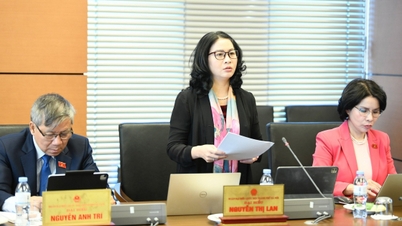



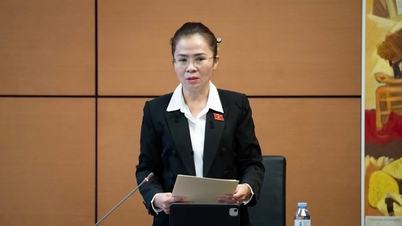




























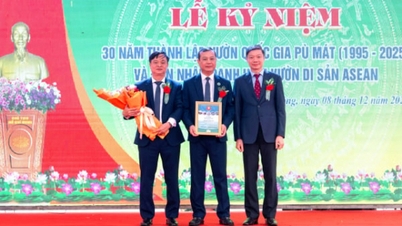








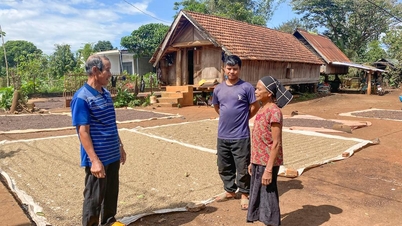






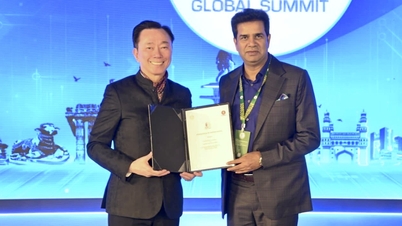






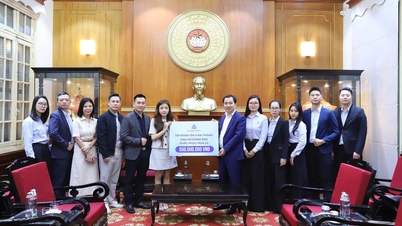














![[Photo] General Secretary To Lam works with the Standing Committees of the 14th Party Congress Subcommittees](https://vphoto.vietnam.vn/thumb/402x226/vietnam/resource/IMAGE/2025/12/09/1765265023554_image.jpeg)





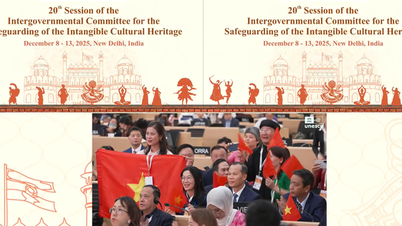




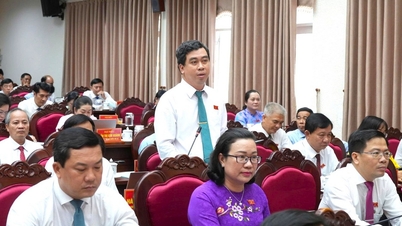






















Comment (0)